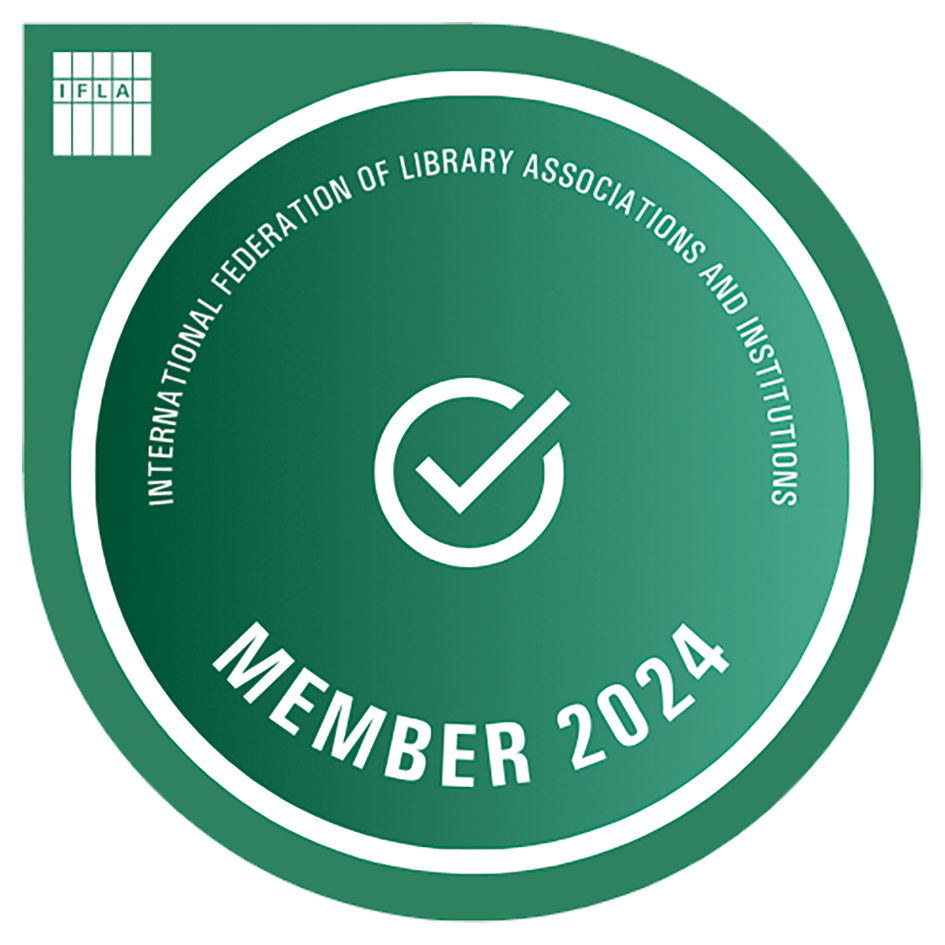News & Events
- 2024-02-27
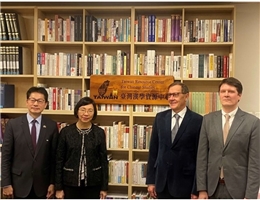
In order to advance Taiwan's participation in international exchange, promote Taiwanese academic research achievements, and display Taiwan's cultural soft power, Taiwan and Estonia's Tallinn University formally signed an agreement establishing a Taiwan Resource Center for Chinese Studies (TRCCS) at the university, completing the inauguration ceremony for the new center on November 9th, 2023. This is the 47th such collaborative base that NCL has established throughout the world, and its location marks the northernmost latitude of a TRCCS yet. The signing and inauguration ceremony was jointly hosted by Director Andres Kollist of Tallinn University's Academic Library and NCL Director-General Shu-hsien Tseng. NCL also presented the new center with symbolic gifts: reproductions of rare ancient books which are treasures of the NCL collection, The Annotated Poetry of Su Dongpo and the Diamond Perfection of Wisdom Sūtra, bearing witness to this historical moment of bilateral collaboration. Estonia Parliamentarian Kristo Enn Vaga, chair of the Estonia-Taiwan Friendship Group, was invited to attend the ceremony and offer remarks. In addition, Rüüt Kaljula, President of the Estonian Alumni Association in Taiwan, Representative Andrew H.C. Lee of the Taipei Mission in the Republic of Latvia, Professor Mei-Fen Chen, the Head of the Education Section of the Taipei Representative Office in Poland, and Professor Alari Allik of Tallinn University were also in attendance at this grand event of cultural significance.
NCL Director-General Shu-hsien Tseng expressed that NCL began establishing TRCCSs abroad in 2012, selecting key foreign universities and research centers as collaborative partners to strengthen collaboration with Chinese Studies research institutions in countries around the world, promote academic exchange in the field of Chinese Studies both at home and abroad, spread awareness of Taiwan's achievements in Chinese Studies, and collectively work to establish a platform for global Chinese Studies resources and information, thereby promoting the breadth and depth of East-West cultural exchange. Estonia not only demonstrates excellent development in digital technology, but their integration of information within society as well as cultural education have also shown excellent performance on the world stage, an example worth Taiwan emulating. In particular, Estonia's achievements in digital public services and digital participation rate among citizens offer a model many countries are striving to learn from. After the outbreak of the COVID-19 pandemic, Estonia was one of the first countries to provide Taiwan with vaccine donations. Therefore, the establishment of a TRCCS in Tallinn University this year was an excellent choice for both Taiwan and Estonia. Not only does the center represent cultural exchange, it also marks Taiwan's efforts to actively give back to international society. This TRCCS is also the first Taiwanese government project to arrive in Estonia for exchange and collaboration since Estonia's government agreed to allow Taiwan to establish a “Taipei” cultural and economic representative office in the capital Tallinn.
Tallinn University is located in Estonia's capital city Tallinn and was founded in 2005. Originally established through the integration of several education institutions in the Tallinn region, it is a young university full of vitality, particularly renowned for its interdisciplinary integration. The university is an important institution for the cultivation of Chinese Studies scholars in northern Europe, including Professor Margus Ott who came to Taiwan in 2016, and Professor Jekaterina Koort who came to Taiwan in 2011, where they respectively conducted special research projects on Classical Chinese Studies at National Central Library.
NCl's initial allocation upon the establishment of the TRCCS at Tallinn University consists of 754 titles, 821 volumes covering the fields of literature, history, philosophy, religion, art, and other areas of humanities research. In addition, considering the importance of digital resources, the center will gradually offer additional digital resources including e-books. We hope that this collaboration can exert a sustainable and positive impact promoting Taiwan and research within Chinese Studies and Taiwan Studies in Estonia and Taiwan.
-
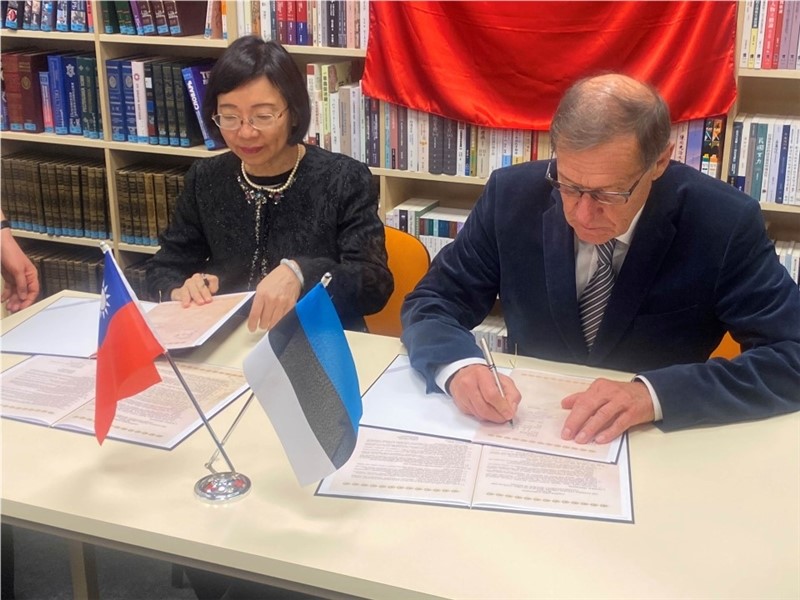 NCL Director-General Shu-hsien Tseng and Director Andres Kollist of Tallinn University’s Academic Library co-sign the collaboration agreement
NCL Director-General Shu-hsien Tseng and Director Andres Kollist of Tallinn University’s Academic Library co-sign the collaboration agreement -
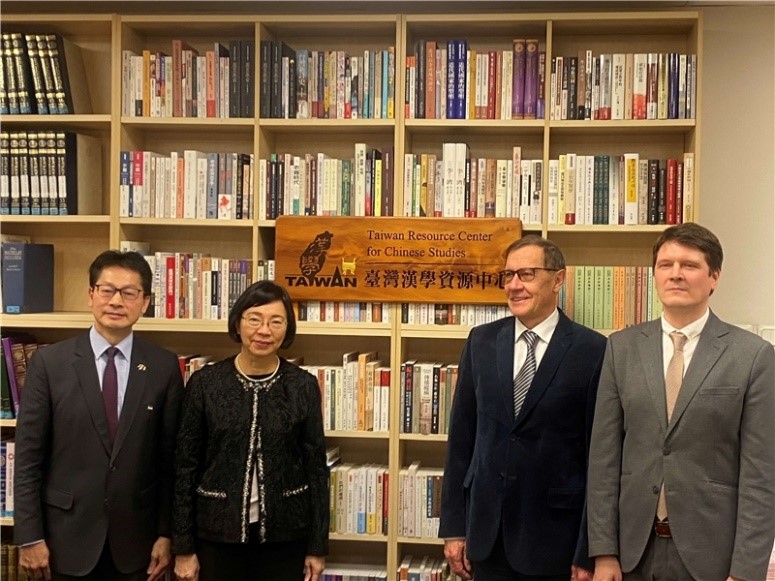 Representative Andrew H C Lee of the Taipei Mission in the Republic of Latvia, NCL Director-General Shu-hsien Tseng, Tallinn University Library Director Andres Kollist, and Professor Alari Allik of Tallinn University take a group photo to mark the occasion
Representative Andrew H C Lee of the Taipei Mission in the Republic of Latvia, NCL Director-General Shu-hsien Tseng, Tallinn University Library Director Andres Kollist, and Professor Alari Allik of Tallinn University take a group photo to mark the occasion -
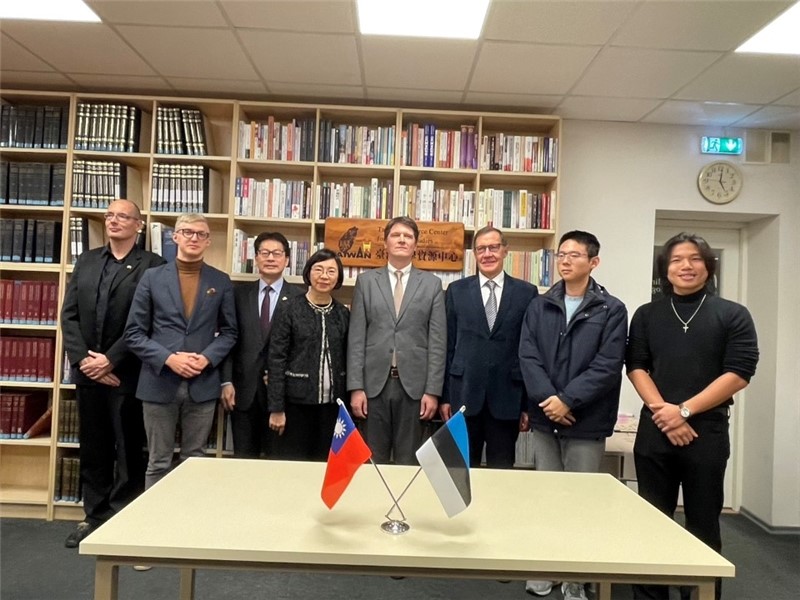 From left, Rüüt Kaljula, President of the Estonian Alumni Association in Taiwan, Parliamentarian Kristo Enn Vaga, chair of the Estonia-Taiwan Friendship Group, NCL Director-General Shu-hsien Tseng, Representative Andrew H C Lee, Professor Alari Allik, Director Andres Kollist, and Taiwanese students who came to attend the ceremony
From left, Rüüt Kaljula, President of the Estonian Alumni Association in Taiwan, Parliamentarian Kristo Enn Vaga, chair of the Estonia-Taiwan Friendship Group, NCL Director-General Shu-hsien Tseng, Representative Andrew H C Lee, Professor Alari Allik, Director Andres Kollist, and Taiwanese students who came to attend the ceremony
- Resources
- NEWS & Events
- ABOUT NCL
- International Cooperation and Exchange
- Services






